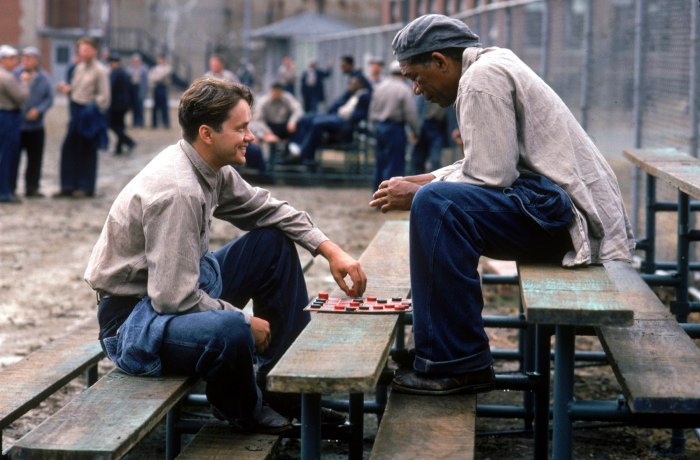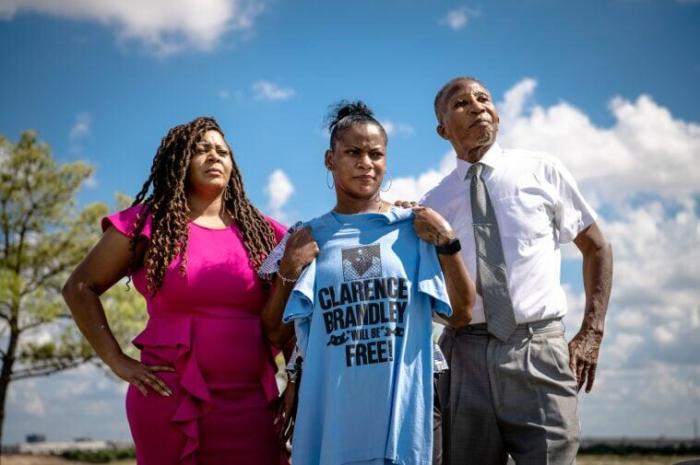The plight of the unjustly convicted is a sobering and complex issue that has far-reaching consequences for individuals, families, and the criminal justice system as a whole. This narrative delves into the causes, consequences, and potential solutions surrounding wrongful convictions, shedding light on a topic that demands our attention and action.
Wrongful convictions, the erroneous imprisonment of innocent individuals, are a grave miscarriage of justice that can have profound and lasting effects on the lives of those affected. Statistics and high-profile cases illustrate the prevalence of this issue, while research uncovers the systemic biases and flaws that contribute to these tragic outcomes.
Introduction: The Plight Of The Unjustly Convicted
The term “unjustly convicted” refers to individuals who have been wrongfully convicted of crimes they did not commit. This grave miscarriage of justice has a profound impact on the lives of the wrongfully convicted and their families, as well as on the integrity of the criminal justice system.
The prevalence of wrongful convictions is alarming, with studies indicating that a significant number of individuals are imprisoned for crimes they did not commit. High-profile cases, such as the Central Park Five and the West Memphis Three, have brought widespread attention to the issue, highlighting the devastating consequences of wrongful convictions.
Wrongful convictions can result from a variety of factors, including false confessions, faulty eyewitness testimony, and prosecutorial misconduct. False confessions, often coerced through manipulative interrogation techniques, can lead to the conviction of innocent individuals.
Faulty eyewitness testimony is another major contributor to wrongful convictions. Eyewitness accounts can be unreliable due to factors such as stress, bias, and the suggestibility of witnesses. Prosecutorial misconduct, such as withholding evidence or engaging in unethical tactics, can also result in wrongful convictions.
The Impact of Wrongful Convictions

Wrongful convictions have a profound and devastating impact on the lives of the wrongfully convicted and their families. The loss of freedom is perhaps the most obvious consequence, with innocent individuals spending years or even decades behind bars for crimes they did not commit.
In addition to the physical and psychological toll of imprisonment, wrongful convictions can lead to social stigma and difficulty reintegrating into society. The wrongfully convicted may face discrimination in employment, housing, and education, making it difficult to rebuild their lives.
The emotional impact of wrongful convictions is immeasurable. The wrongfully convicted may experience feelings of anger, shame, and guilt, as well as a profound sense of injustice. Their families and loved ones also suffer, enduring the pain of knowing that an innocent person has been wrongly imprisoned.
Systemic Issues Contributing to Wrongful Convictions
While individual factors can contribute to wrongful convictions, systemic issues within the criminal justice system also play a significant role. Racial profiling, poverty, and lack of access to adequate legal representation are all factors that can increase the risk of wrongful convictions.
Racial profiling, the practice of targeting individuals based on their race or ethnicity, can lead to the disproportionate arrest and conviction of innocent people of color. Poverty can also contribute to wrongful convictions, as individuals from low-income backgrounds may be less likely to have access to quality legal representation and may be more vulnerable to coercion and false confessions.
Lack of access to adequate legal representation is another systemic issue that can lead to wrongful convictions. Individuals who cannot afford to hire an attorney may be appointed a public defender who is overworked and underfunded, which can compromise the quality of their defense.
Exoneration and Compensation
The process of exoneration, the overturning of a wrongful conviction, can be complex and challenging. The wrongfully convicted may need to prove their innocence through new evidence or DNA testing, which can be a lengthy and expensive process.
Even after exoneration, the wrongfully convicted may face barriers to compensation. Many states have laws that limit the amount of compensation that can be awarded to victims of wrongful convictions, and the process of obtaining compensation can be adversarial and time-consuming.
Despite these challenges, there have been some notable successes in exonerating the wrongfully convicted and providing them with compensation. The Innocence Project, a non-profit organization dedicated to exonerating the wrongfully convicted, has played a significant role in securing the release of hundreds of innocent individuals.
Preventing Wrongful Convictions

Preventing wrongful convictions requires a comprehensive approach that addresses both individual factors and systemic issues within the criminal justice system. Best practices include reforms to eyewitness identification procedures, the use of DNA evidence, and the role of independent review boards.
Eyewitness identification procedures can be improved through the use of double-blind lineups, which reduce the risk of bias and suggestibility. DNA evidence can be used to exonerate the wrongfully convicted and to prevent future wrongful convictions by identifying the true perpetrators of crimes.
Independent review boards can provide an impartial assessment of cases involving potential wrongful convictions, helping to ensure that innocent individuals are not wrongly imprisoned.
Advocacy and Support for the Wrongfully Convicted

Advocacy organizations and support groups play a vital role in assisting the wrongfully convicted. These organizations provide legal assistance, emotional support, and public awareness about the issue of wrongful convictions.
Public awareness and education are essential for preventing wrongful convictions and supporting the wrongfully convicted. By educating the public about the causes and consequences of wrongful convictions, we can help to create a more just and equitable criminal justice system.
Successful advocacy campaigns have led to policy changes and increased public support for the wrongfully convicted. The Innocence Project, for example, has been instrumental in securing the passage of laws that provide compensation to victims of wrongful convictions and that reform eyewitness identification procedures.
Question & Answer Hub
What are the most common causes of wrongful convictions?
False confessions, faulty eyewitness testimony, prosecutorial misconduct, and inadequate legal representation are among the leading causes of wrongful convictions.
What are the psychological and emotional consequences of wrongful convictions?
Wrongful convictions can lead to severe psychological distress, including post-traumatic stress disorder, depression, and anxiety. The loss of freedom, social stigma, and difficulty reintegrating into society can also have devastating effects.
What are some examples of successful exonerations?
Notable exonerations include the Central Park Five, who were wrongly convicted of a crime they did not commit and spent years in prison before being exonerated through DNA evidence, and Steven Avery, whose wrongful conviction for murder was overturned after spending 18 years in prison.